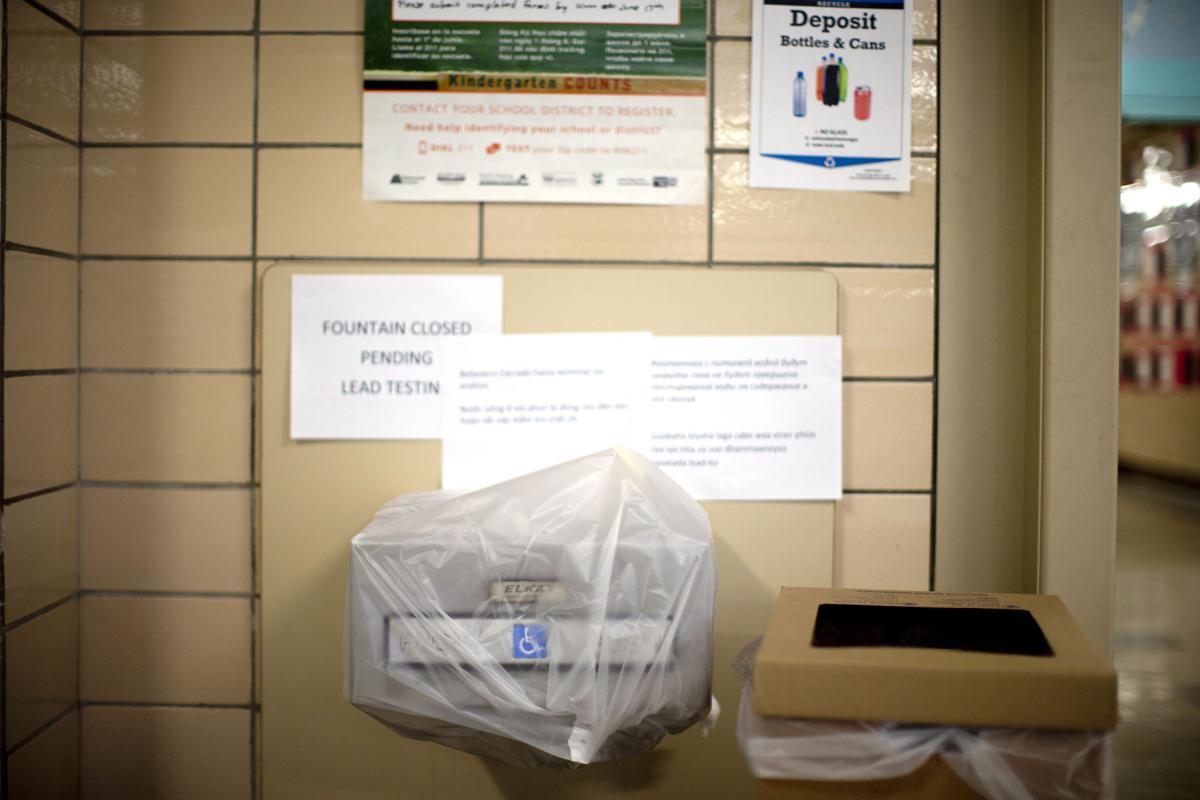Elevated levels of lead have been found at more than a dozen Pima County schools and district facilities, prompting a handful to shut down drinking fountains.
The schools and facilities were identified through a state screening program to proactively identify potential lead issues in public school water systems.
Of the 137 sites tested in Pima County so far, three schools and one community resource center had to shut down drinking fountains , the preliminary results from the Arizona Department of Environmental Quality’s public school lead screening program showed.
Those facilities are: Sunnyside’s Los Ranchitos Resource Center and Tucson Unified’s Catalina High, Myers/Ganoung Elementary and Rincon-University High campuses.
ADEQ started the voluntary screening program for public schools as a precautionary measure in January after lead seeped into the drinking water in Flint, Michigan, caused a public health crisis.
The ADEQ effort includes 1,424 public schools identified as at-risk across the state, but not charter schools.
“We want to be protective of children’s health,” said Daniel Czecholinski, a water-quality manager for ADEQ.
To date, results indicate that nearly 96 percent of Arizona’s schools are safe, he said. “We do not see an issue with lead systemically through the state.”
One or more samples from 16 Pima County school facilities initially showed above-threshold lead levels thus far, latest results show.
For water sources that exceed 15 parts per billion in lead but not 50, ADEQ recommends that school officials flush them and/or put up warning signs, Czecholinski said.
Fixtures that exceed 50 parts per billion are immediately shut down and tested again, he said. Follow-up testing sometimes show different results.Even when samples show higher than the 15 parts per billion threshold, Czecholinski said it’s safe to use for washing hands or toilets.
Many of the issues ADEQ has identified relate to problems that are relatively easy to fix, such as needing to replace a single fixture or a pipe, Czecholinski added. The Arizona School Facilities Board is working with schools to help them do that.
Tucson’s largest school district — TUSD — has had 577 samples tested thus far, said Stuart Duncan, the district’s chief operating officer. Of those, results for 357 samples came back.
Three TUSD schools had to shut down drinking fountains that showed above-threshold lead levels, he said. Learning has not been disrupted thus far.
At Catalina High School, two fixtures were shut down after test results revealed above 50 parts per billion lead levels, Duncan said. TUSD is working to identify exactly where the lead is coming from and will retest and replace fixtures as needed.
Sunnyside Unified School District shut off all drinking fountains at Los Ranchitos Resource Center as a cautionary measure, even though only one fountain’s test results showed more than 50 parts per billion of lead, said Hector Encinas, Sunnyside’s chief financial officer.
The district will find out if major renovations are needed or if it’s just one drinking fountain, he said.
A drinking fountain at Los Niños Elementary School also was found to have above-threshold lead levels. Although ADEQ did not require the school to shut it off, Sunnyside shut off all the water fountains in that hallway and provide dbottled water.
“We’re not going to take any chances,” Encinas said.
“For most of our school-age children, this does not pose a danger,” says Dr. Francisco Garcia, director of Pima County’s health department, which provides resources to school districts in the process. “There’s not a public health emergency that is going on that would lead us to take schools offline.”
Most lead exposure instances are not related to drinking water, he said. Children are more at risk of being exposed through toys, decorations or old buildings that have lead paint on them.
“The wrong thing is for families to panic,” he said. “The right thing to do is to keep your ears open and see what follow-up testing shows.”





